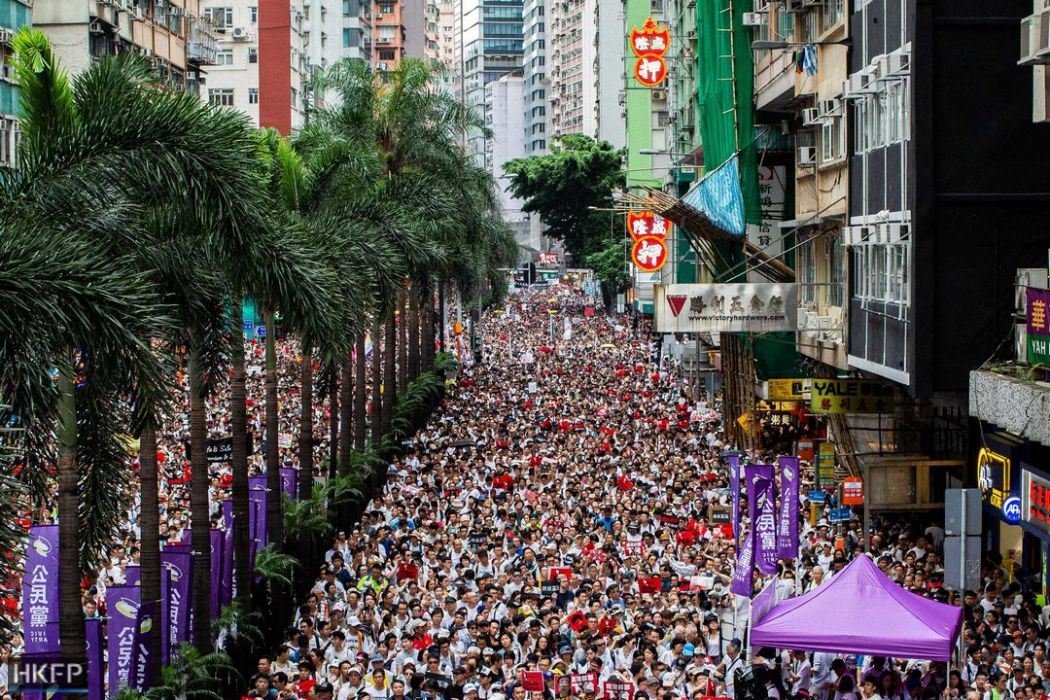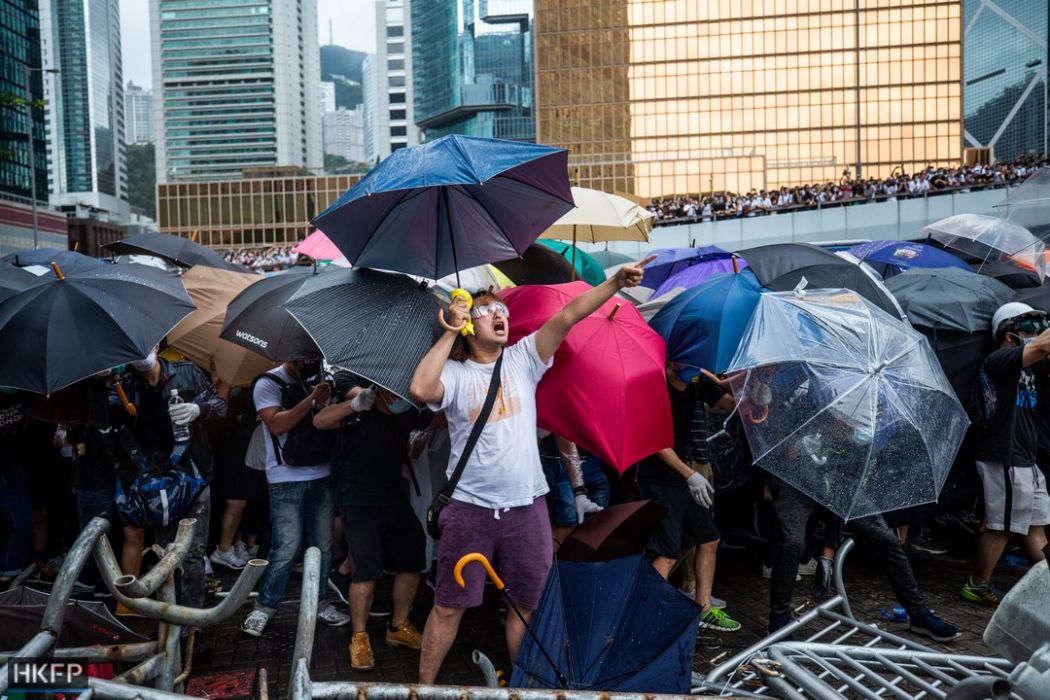She can resign now or exit more quietly at a later date, but one thing is certain in this week of record-breaking protests, violent street clashes, tear gas, pepper spray, beanbag rounds and rubber bullets in the streets of Hong Kong: this marks the end for Chief Executive Carrie Lam Cheng Yuet-ngor.
After an auspicious start with pledges of harmony and reconciliation following the five long, strife-filled years the city experienced under her much-loathed predecessor, Leung Chun-ying, in just under two years as Lam has managed to become even less popular and more reviled than the man who inspired opponents to throw everything from profanity to water glasses to tuna sandwiches at him out of purple-faced anger and rage.
Indeed, Hong Kong affairs have turned so ugly and tense that Lam has become the victim of death threats.

Let’s not forget, however, that our viciously caricatured and verbally eviscerated leader is more the messenger than the author of bad news. Much more attention should be paid to the men behind the curtain pulling her strings— Liaison Office Director Wang Zhimin and his slimy minions in Sai Wan, the true centre of power in Hong Kong, where all weighty decisions are now made.
Their names should also be shouted and their cartoon faces posterised at every Hong Kong protest over the city’s dwindling personal freedoms and disappearing autonomy.
Sai Wan, taking its cues from Beijing, calls the shots, and Lam takes the beatings. It’s a successful formula—for Sai Wan, that is—and it’s been playing out since Lam stepped into office on July 1, 2017, soon after which those pledges of harmony and reconciliation morphed into acts of censorship, suppression and, this week, raw violence.
All along, loyal and dutiful bureaucrat that she is, Lam has absorbed the brickbats and soldiered on.
Most Hongkongers agreed to frown and bear it when, just a few weeks into the Lam administration, four pro-democracy law-makers were disqualified from the Legislative Council on the questionable grounds of improper oath-taking.
After all, the pan-democrats can be a fractious, dysfunctional bunch. Sometimes they make it hard to care.

The relative ease with which they were emasculated in the Legislative Council, however, emboldened Wang and Co., and tougher, more alarming action would follow—with, as always, Lam leading out.
A year later, Lam’s government, no doubt acting on Sai Wan’s wishes, banned the pro-independence Hong Kong National Party and declared Victor Mallet—a respected Financial Times journalist who had arranged for the party’s leader, Andy Chan Ho-tin, to give a speech at the Foreign Correspondents’ Club—persona non grata in Hong Kong.
This time many voices, both local and international, cried foul.
Then followed the legislative railroad job that saw LegCo adopt an unsettling co-location agreement with Beijing at the new high-speed rail terminus, over strenuous objections from pan-democrats to mainland security and immigration officials operating under mainland laws smack dab in the middle of Hong Kong.
In the minds of many Hongkongers, a frightening precedent had now been set, permitting the mainland’s skewed brand of justice to hold sway in Hong Kong.
Fast forward to last Sunday’s million-person march opposing government-proposed amendments to the Fugitive Offenders Ordinance that would allow criminal suspects in Hong Kong to be transferred to jurisdictions, most notably the mainland, with which the city does not already have an extradition agreement.

This, along with the subsequent mass protest and violent clashes outside LegCo on Wednesday that successfully delayed a second reading of the bill, amount to a massive rejection of Lam and her ministers, who have been resolute and relentless in preaching what they pitch as the merits of the proposed amendments, and in slamming opponents as fear-mongers who are “demonising” their genuine efforts to prevent Hong Kong from becoming a safe haven for hardened criminals.
After years of latency following the failed pro-democracy Occupy movement, which paralysed key sections of the city for 79 days in 2014, the battle over the extradition bill has once again lit up Hong Kong’s conscience and reignited its culture of mass protest when those purporting to represent the people go so wilfully and blatantly against their wishes.
Ultimately, however, with the support of pro-Beijing loyalists in LegCo, the bill is destined to pass, dealing yet another serious blow to the One Country, Two Systems arrangement that was supposed to protect Hong Kong from becoming just another Chinese city, where the rule of party supersedes the rule of law.
That said, this will be a Pyrrhic victory for Lam, who has lost most of her authority and credibility in the bruising fight to pass the bill.

One in seven of Hong Kong’s 7.4 million people came out passionately against her last Sunday, according to organisers’ estimates. When one considers small children, the elderly and the infirm who were incapable of taking part in the march, the ratio becomes even more damning.
There can be no second term. There will be no harmony, no reconciliation.
A 2003 protest of 500,000 against proposed anti-subversion legislation forced Beijing to abandon Hong Kong’s first post-handover chief executive, Tung Chee-hwa, who resigned before his term ended. Lam’s proposed extradition amendments managed to double that turnout.
So the writing is on the wall. But let’s not forget who is truly responsible for yet another Hong Kong leadership fiasco.
Hong Kong chief executives—from Tung to Donald Tsang Yam-kuen (jailed for misconduct in office) to Leung to Lam—come and go in a sad and tawdry succession of disaffection and failure because each of these leaders has been given the impossible task of serving two masters: the people of Hong Kong and the central authorities in Beijing.

Clearly, at this point in Hong Kong’s long, rich and troubled history, these two goals are irreconcilable.
As things stand, Beijing has decided to ignore the will of the Hong Kong people and sacrifice our current chief executive on the altar of an extradition bill that will be the biggest blow yet to Hong Kong’s legal autonomy and rule of law.
Lam will go. Rinse and repeat—bring on the next puppet chief executive.

The Hong Kong Free Press #PressForFreedom 2019 Funding Drive seeks to raise HK$1.2m to support our non-profit newsroom and dedicated team of multi-media, multi-lingual reporters. HKFP is backed by readers, run by journalists and is immune to political and commercial pressure. This year’s critical fundraiser will provide us with the essential funds to continue our work into next year.

